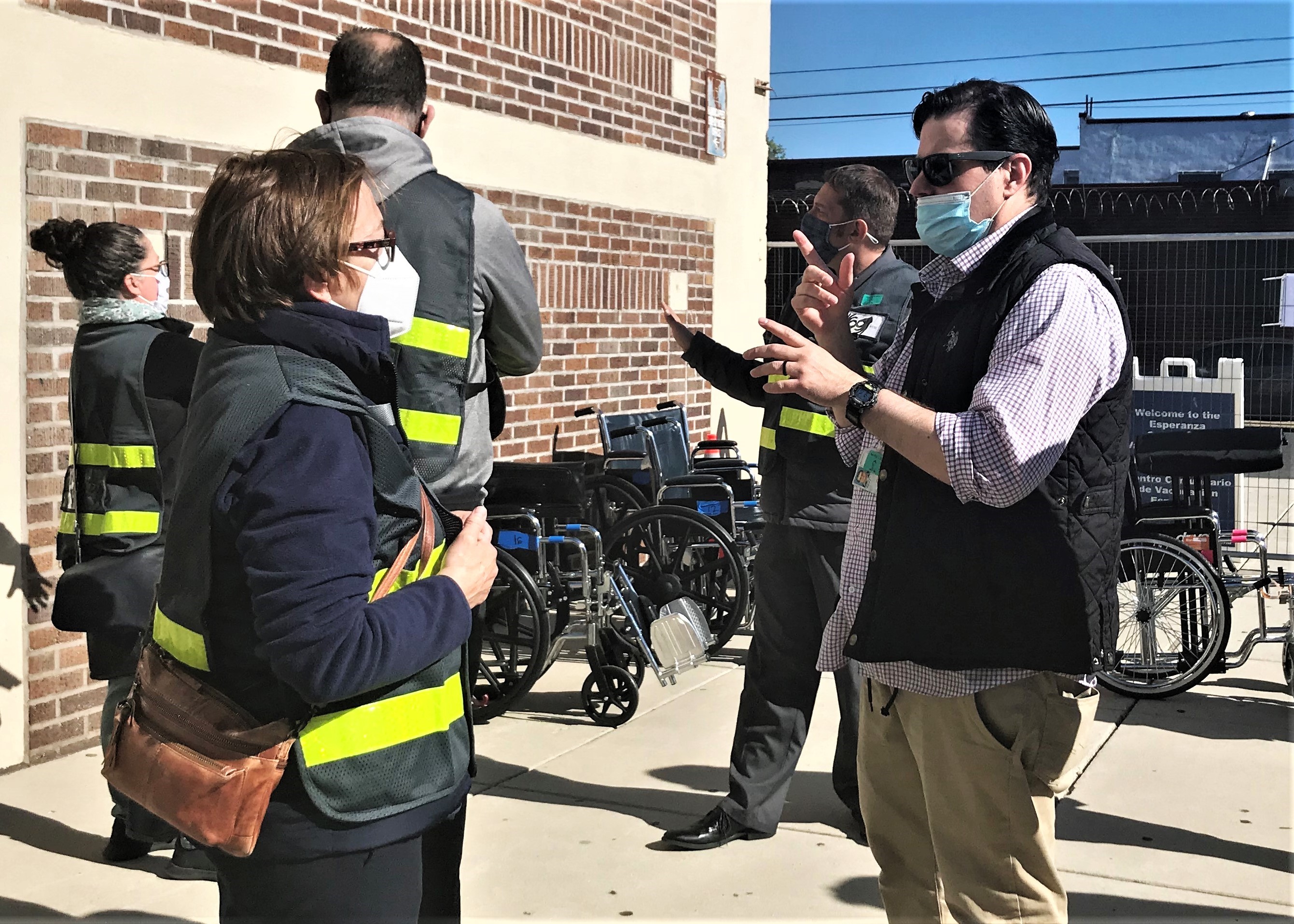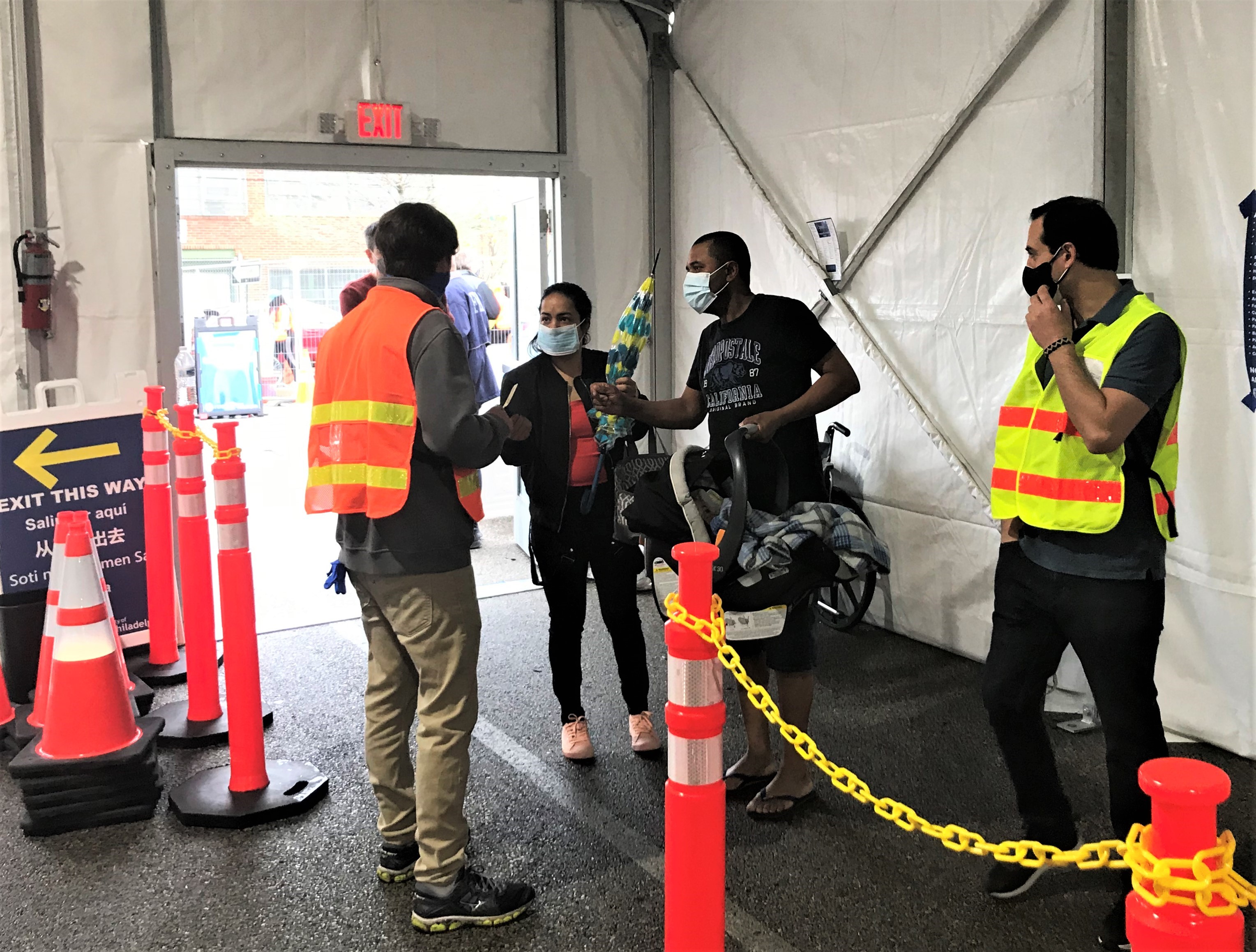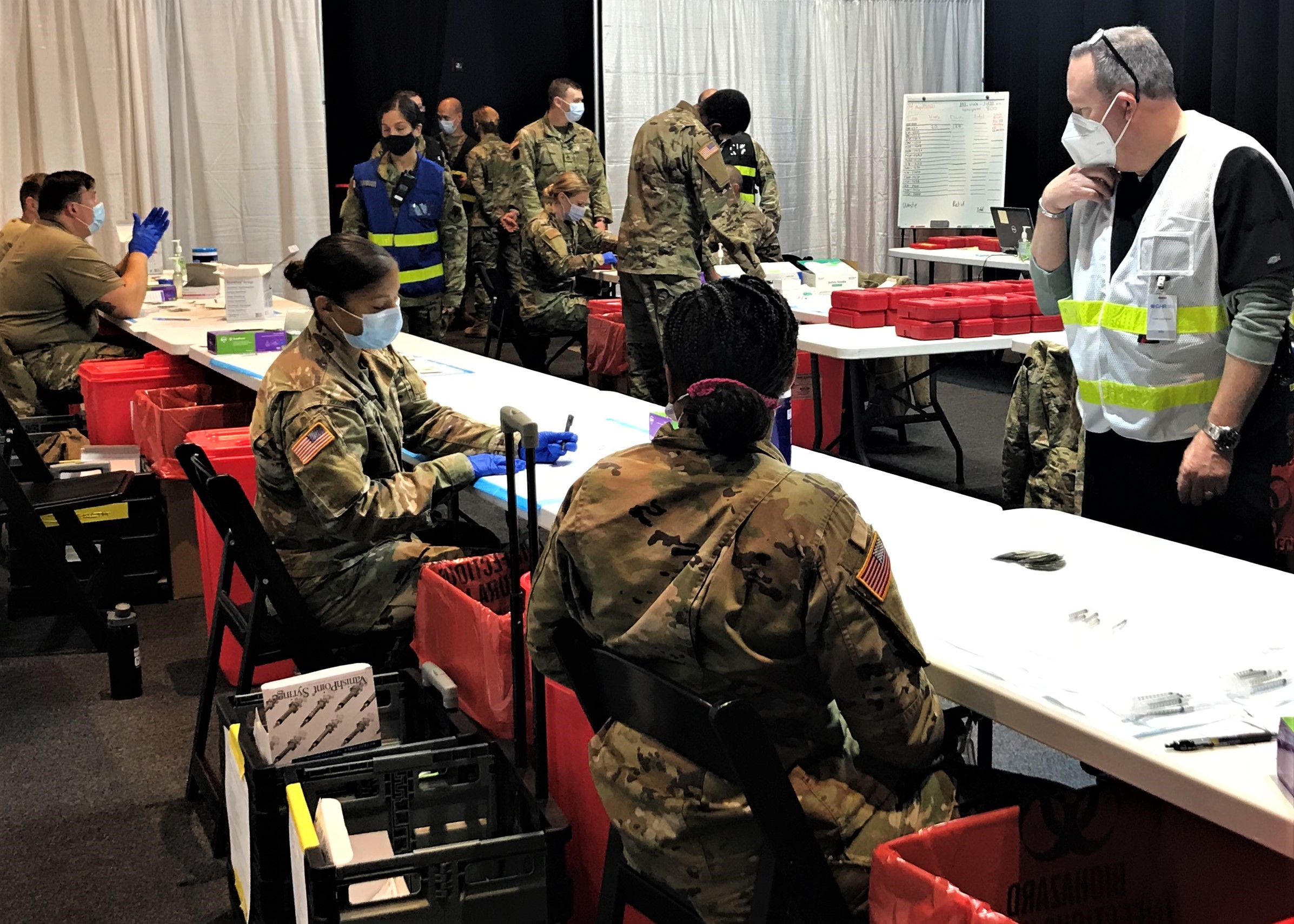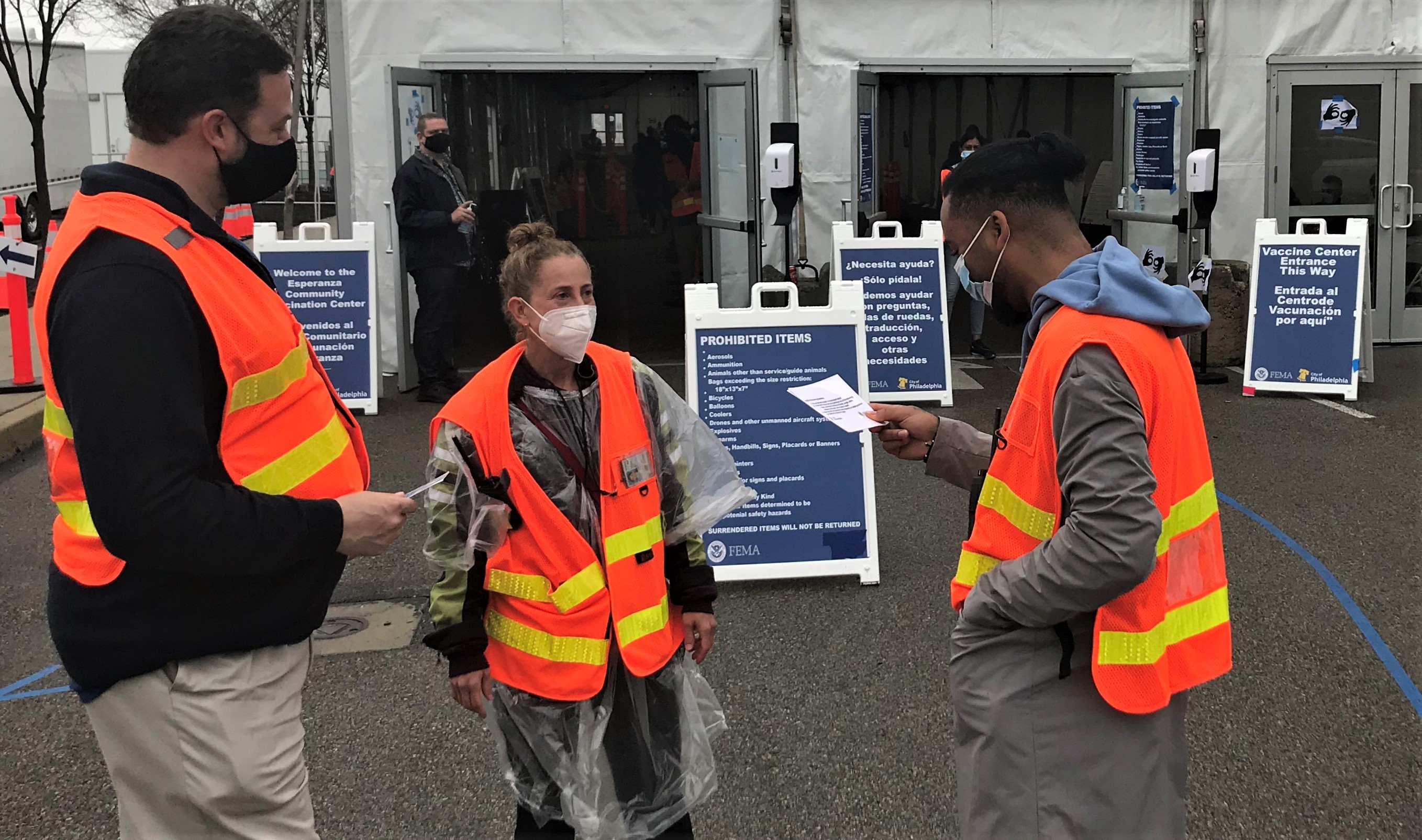PHILADELPHIA, PA – On Saturday, May 1, the Esperanza Community Vaccination Center (ECVC) hosted Deaf Vaccination Day to increase awareness of the daily availability of ASL and deaf interpreters as well as Spanish-speaking deaf interpreters. Spearheaded by FEMA Region 3 Disability Integration Specialist PJ Mattiacci, who is deaf, the event drew more than 20 members from the Deaf and Hard of Hearing Community, many of whom cited the presence of interpreters alleviated their anxiety about the ease of the process. Those who spoke languages other than English were also pleased by the availability of translators to guide them, a sentiment shared by non-English speaking and deaf or hard of hearing patients who get vaccinated at the Center City Vaccination Center (CCVC).
Since the opening of Philadelphia’s two FEMA-supported community vaccination centers (CVC), FEMA has provided various accommodations to ensure equitable access to community members. This includes the provision of access and functional need considerations, such as wheelchairs and language translators, among them, American Sign Language (ASL) and deaf interpreters. These accommodations are intended to reduce vaccine hesitancy and make the process smooth and accessible for everyone.

Caption: PJ Mattiacci communicates with a staff member at the Esperanza Community Vaccination Center in North Philadelphia. (Photo by Rossyveth Rey/FEMA)
Translators of multiple languages are available at the CCVC and ECVC, and additional languages are available by telephone through the Language Line. Both CVCs have an assisted check-in area and process, as well as signage with directions for patients with access and functional needs. There are privacy or sensory booths on site for those who need it. The privacy booth is a place for those with noise or stimulation sensitivities, those needing to change clothes, or for those who prefer more privacy.
Regarding his hopes for Deaf Vaccination Day, Mattiacci said “the number one goal is equitable accessibility for all programs at FEMA.” When Mattiacci noticed a low attendance from the Deaf and Hard of Hearing community at CVCs, he did some research and found that vaccine hesitancy was mainly due to lack of awareness that ASL and deaf interpreters are available on site to assist them through the process. He took initiative to coordinate targeted outreach to them. Partnering with several community-based and faith-based organizations, such as the Archdiocese of Philadelphia and Pennsylvania School for the Deaf to spread the word among their constituents and students, the outreach eventually expanded into a formal event.

Caption: Staff assist incoming patients at the Esperanza Community Vaccination Center in North Philadelphia. (Photo by Rossyveth Rey/FEMA)
“My goal is for the Deaf and Hard of Hearing Community to feel more a part of the community and reduce vaccine hesitancy,” said Mattiacci. “I don't want people to feel stressed about whether there will be communication available. There are interpreters and we have the right people to answer the right questions.”

Caption: The Pennsylvania National Guard assists with patient registration and vaccine administration at the Esperanza Community Vaccination Center in North Philadelphia. (Photo by Rossyveth Rey/FEMA)
FEMA’s Office of Disability Integration and Coordination (ODIC) helps deliver the agency’s shared mission of helping people before, during and after disasters in ways that maximize the inclusion of, and accessibility for, people with disabilities. This is ensured by providing federal, state, local, tribal and territorial governments, the public sector and non-profit organizations with the tools, training, resources and strategies necessary to help ensure that people with disabilities can participate in, and benefit from, programs and services during all phases of emergency management.
“We develop strategies to promote the integration of the needs of people with disabilities into the design and implementation of new programs, as well as identifying potential barriers to access and developing strategies to eliminate those barriers,” said Janice Barlow, Acting Region 3 Administrator. The ODIC’s External Civil Rights Division “requires that FEMA and its recipients ensure nondiscrimination for individuals with disabilities by providing equal access to programs, physical accessibility of facilities, effective communication, and reasonable accommodations.”

Caption: Staff at Esperanza Community Vaccination Center stand outside the clinic where signage in multiple languages is posted for patients who speak languages other than English. (Photo by Rossyveth Rey/FEMA)
###


